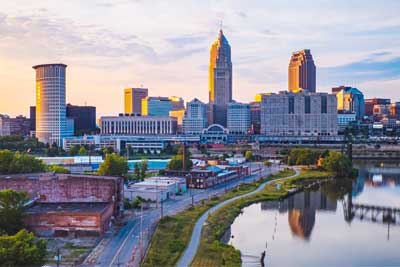Post Study Migration Pathways
To stay in the US post-study, an international student has 2 options available to them – re-enroll in a post-secondary program OR apply for a visa status change. International students on a F1 visa have 60 days from the date of completion of the program to leave the US, whereas those on a M1 or J1 visa have 30 days to leave the US.
The American Immigration system can be very complex & confusing to understand. There are as many visas as there are letters in the alphabet, and the law pertaining to visas is constantly changing. Getting expert help will make it easier for you to navigate through your post-study options.
Some of the most common visa options that international graduates can access are :
Non-Immigrant visas
Optional Practical Training
Most international graduates are eligible for ‘Optional Practical Training’ post-study. The training period they are eligible for will depend on the type of qualification they have completed, which is as follows :
- Graduates with STEM qualifications – can be granted up to a 3 year post-study “Optional Practical Training” authorization.
- M1 visa Graduates with vocational qualifications – can be granted up to a 6 month “Optional Practical Training” authorization.
- All other graduates – can be granted up to a 18 month “Optional Practical Training” authorization (up to 36 months for post-doctoral training). The International Students Office can also help you in this regard.
Non-Immigrant H-3 Visa (Trainee)
An H-3 trainee visa is for those individuals who –
- Are working in a field in which adequate training is not available in their home country
- lack adequate qualifications and/or skills in their field
- wish to receive training in their field (except graduate medical education or training) in the US and use that knowledge & training in their home country, and
- are invited by a US individual or organisation who has an established training program.
The H-3 visa is valid for 2 years and cannot be extended or transferred to H-1B/L-1 status.
Non-Immigrant H-1B Visa (Specialty Occupation)
This visa is for individuals who wish to perform services in a specialty occupation. The minimum eligibility criteria for obtaining this visa are :
- Being sponsored by a US employer
- Having a U.S. Bachelors Degree or its equivalent
- A correlation between the applicant’s education and work experience (job duties), and
- Obtaining an approval of a labor condition attestation from the Department of Labor
The H-1B is granted for an initial period of 3 years and can be extended for an additional 3 years, but cannot be extended beyond 6 years. Spouses and minor children below 21 years can obtain H-4 visas. There is a cap on the number of H1B visas that can be issued in a fiscal year.
Non-Immigrant E-1/E-2 Visa (Treaty Trader/Treaty Investor)
Certain countries have entered into treaties with the United States, which allows their nationals to obtain E1 treaty trader or E2 treaty Investor visas. A fundamental requirement for an E-1 visa is that over 50% of the company’s trade must be between the U.S. and the treaty country. Applicants must be citizens of an E1 treaty country. Subject to requirements being met, this visa can be renewed indefinitely.
An E-2 visa requires a “substantial investment” to be made into a new or existing enterprise. Applicants must be citizens of an E2 treaty country. Subject to requirements being met, this visa can also be renewed indefinitely.
Non-Immigrant L-1 Visa (Intracompany Transfer)
The L-1 intracompany transferee visa is used for companies abroad who have offices in the U.S. and would like to transfer certain employees here on temporary employment assignments. This visa is designed for managers and executives (maximum admission: 7 years) or people possessing specialized knowledge (maximum admission: 5 years).
If the US subsidiary is a newly established office, the applicant will only be admitted for an initial period of 1 year. It is possible to apply for extensions, which must be accompanied by documentation showing major business activity or future business activity and an increase in personnel. It is possible to apply for permanent residency through this category as a multinational executive/manager.
Immigrant Visas
There are various categories under which it is possible to acquire permanent residency status in the U.S. The easiest and quickest way is through a family relationship where the petitioner is either a U.S. citizen or permanent resident. The other categories involve investors, employment sponsorship, diversity immigrants, refugees and asylum seekers. Following are the “Employment-based Immigrant visas” that can be looked at by US International graduates :
First Preference : Priority Workers
This category is for the following :
- persons of extraordinary ability in sciences, art, education, business or athletics
- outstanding professors and researchers, and
- multi-national executives and managers.
Under the extraordinary ability subcategory above, the applicant does not require a job offer and the application can be processed fairly expeditiously. Only those applicants who have reached the top of their field can apply under this category and must intend to continue to work in the particular area of extraordinary ability. In addition, the applicant must show that his or her entry will benefit the U.S.
Second Preference : Advanced Degree Professions / Exceptional Ability
This is for individuals who hold advanced degrees or foreigners who have Exceptional Ability in the sciences, arts or business. Although Labor Certification is usually required, it is possible to obtain a waiver, if it can be shown that the applicant’s employment will be in the “national interest”.
Third Preference : Labor Certification
This category usually requires Labor Certification & a full-time job offer. Three separate sub-categories exist:
1. Skilled Workers
2. Professionals
3. Unskilled workers (other workers)
Fourth Preference : Special Immigrants
This category is designed for “special immigrants” and is limited to 10,000 visas per year. Certain religious workers qualify under this category, which does not require Labor Certification.
Fifth Preference : Investors
The EB-5 visa allows for two-year conditional residency for people who invest either $1.8 million (or $900,000 in underdeveloped areas or areas of high unemployment) in a new commercial enterprise that employs 10 U.S. citizens or permanent residents on a full-time basis and manages the business on a day-to-day basis.


